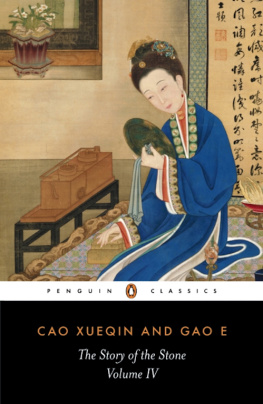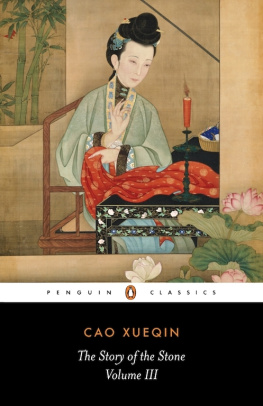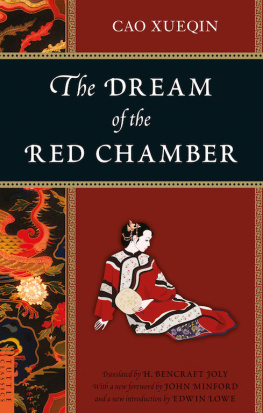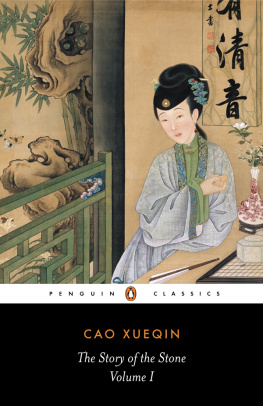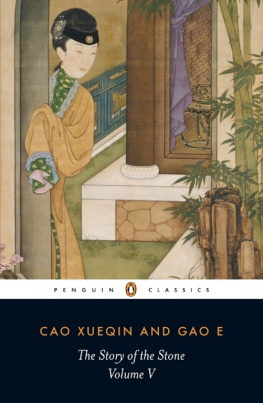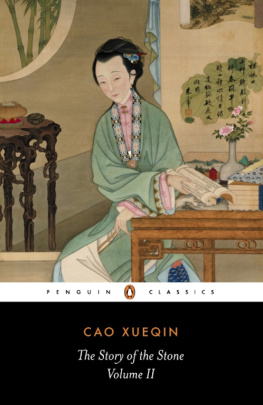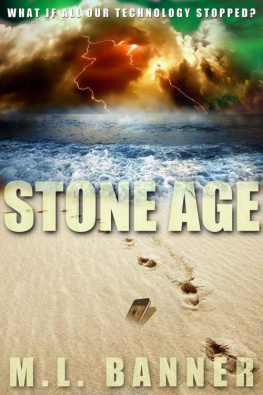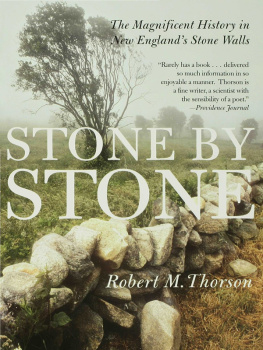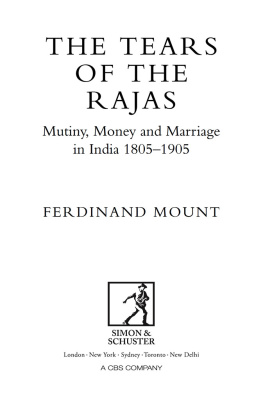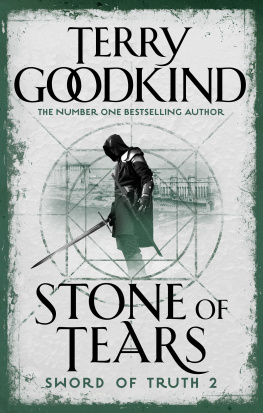Cao Xueqin - The Story of The Stone: The Debt of Tears (Volume IV)
Here you can read online Cao Xueqin - The Story of The Stone: The Debt of Tears (Volume IV) full text of the book (entire story) in english for free. Download pdf and epub, get meaning, cover and reviews about this ebook. publisher: Penguin Books Ltd, genre: Detective and thriller. Description of the work, (preface) as well as reviews are available. Best literature library LitArk.com created for fans of good reading and offers a wide selection of genres:
Romance novel
Science fiction
Adventure
Detective
Science
History
Home and family
Prose
Art
Politics
Computer
Non-fiction
Religion
Business
Children
Humor
Choose a favorite category and find really read worthwhile books. Enjoy immersion in the world of imagination, feel the emotions of the characters or learn something new for yourself, make an fascinating discovery.
- Book:The Story of The Stone: The Debt of Tears (Volume IV)
- Author:
- Publisher:Penguin Books Ltd
- Genre:
- Rating:4 / 5
- Favourites:Add to favourites
- Your mark:
- 80
- 1
- 2
- 3
- 4
- 5
The Story of The Stone: The Debt of Tears (Volume IV): summary, description and annotation
We offer to read an annotation, description, summary or preface (depends on what the author of the book "The Story of The Stone: The Debt of Tears (Volume IV)" wrote himself). If you haven't found the necessary information about the book — write in the comments, we will try to find it.
The Story of The Stone: The Debt of Tears (Volume IV) — read online for free the complete book (whole text) full work
Below is the text of the book, divided by pages. System saving the place of the last page read, allows you to conveniently read the book "The Story of The Stone: The Debt of Tears (Volume IV)" online for free, without having to search again every time where you left off. Put a bookmark, and you can go to the page where you finished reading at any time.
Font size:
Interval:
Bookmark:

PENGUIN CLASSICS
VOLUME IV
CAO XUEQIN (?171563) was born into a family which for three generations held the office of Commissioner of Imperial Textiles in Nanking, a family so wealthy that they were able to entertain the Emperor Kangxi four times. But calamity overtook them and their property was confiscated. Cao Xueqin was living in poverty near Peking when he wrote his famous novel The Story of the Stone (also know as The Dream of the Red Chamber), of which this is the fourth volume. The first three volumes, The Golden Days, The Crab-Flower Club and The Warning Voice, translated by David Hawkes, and volume five, The Dreamer Wakes, translated by John Minford, are also published in Penguin Classics.
GAO E (?17401815) was a Chinese Bannerman of the Bordered Yellow Banner, who for the last twenty years of his life worked in the Grand Secretariat and the Censorate in Peking. In 1792 he and his friend Cheng Weiyuan published for the first time a complete version of The Story of the Stone in 120 chapters. Previously, handwritten copies of the novel had circulated, which ended with the eightieth chapter. Cheng and Gao claimed that they edited the last forty chapters of their complete version from a fragmentary manuscript by the original author.
JOHN MINFORD was born in 1946. He studied Chinese at Oxford and at the Australian National University, and has taught in China, Hong Kong and New Zealand. He has edited (with Geremie Barm) Seeds of Fire: Chinese Voices of Conscience, and (with Joseph S. M. Lau) Chinese Classical Literature: An Anthology of Translations. He is currently translating the Strange Tales of Pu Songling (16401715), Sunzis The Art of War, and the Martial Arts fiction of the contemporary Hong Kong novelist Louis Cha (Jin Yong).
A CHINESE NOVEL BY
CAO XUEQIN
IN FIVE VOLUMES
*
VOLUME IV
THE DEBT OF TEARS
*
TRANSLATED BY JOHN MINFORD
EDITED BY GAO E
PENGUIN BOOKS
PENGUIN BOOKS
Published by the Penguin Group
Penguin Books Ltd, 80 Strand, London WC2R 0RL, England
Penguin Putnam Inc., 375 Hudson Street, New York, New York 10014, USA
Penguin Books Australia Ltd, 250 Camberwell Road, Camberwell, Victoria 3124, Australia
Penguin Books Canada Ltd, 10 Alcorn Avenue, Toronto, Ontario, Canada M4V 3B2
Penguin Books India (P) Ltd, 11 Community Centre, Panchsheel Park, New Delhi 110 017, India
Penguin Books (NZ) Ltd, Cnr Rosedale and Airborne Roads, Albany, Auckland, New Zealand
Penguin Books (South Africa) (Pty) Ltd, 24 Sturdee Avenue, Rosebank 2196, South Africa
Penguin Books Ltd, Registered Offices: 80 Strand, London WC2R 0RL, England
www.penguin.com
This translation first published 1982
Translation copyright John Minford, 1982
All rights reserved
Except in the United States of America, this book is sold subject to the condition that it shall not, by way of trade or otherwise, be lent, re-sold, hired out, or otherwise circulated without the publishers prior consent in any form of binding or cover other than that in which it is published and without a similar condition including this condition being imposed on the subsequent purchaser
ISBN: 978-0-14-196891-9
FOR RACHEL
Chinese proper names in this book are spelled in accordance with a system invented by the Chinese and used internationally, which is known by its Chinese name of Pinyin. A full explanation of this system will be found overleaf, but for the benefit of readers who find systems of spelling and pronunciation tedious and hard to follow a short list is given below of those letters whose Pinyin values are quite different from the sounds they normally represent in English, together with their approximate English equivalents. Mastery of this short list should ensure that names, even if mispronounced, are no longer unpronounceable.
c = ts
q = ch
x = sh
z = dz
zh = j
The syllables of Chinese are made up of one or more of the following elements;
1. an initial consonant (b.c.ch.d.f.g.h.j.k.l.m.n.p.q.r. s.sh.t.w.x.y.z.zh)
2. a semivowel (i or u)
3. an open vowel (a.e.i.o.u.), or
a closed vowel (an.ang.en.eng.in.ing.ong.un), or
a diphthong (ai.ao.ei.ou)
The combinations found are:
3 on its own (e.g. e, an, ai)
1+ 3 (e.g. ba, xing, hao)
1+2 + 3 (e.g. xue, qiang, biao)
Apart from c = ts and z = dz and r, which is the Southern English r with a slight buzz added, the only initial consonants likely to give an English speaker much trouble are the two groups
j q x and zh ch sh
Both groups sound somewhat like English j ch sh; but whereas j q x are articulated much farther forward in the mouth than our j ch sh, the sounds zh ch sh are made in a retroflexed position much farther back. This means that to our ears j sounds halfway between our j and dz, q halfway between our ch and ts, and x halfway between our sh and s; whilst zh ch sh sound somewhat as jr chr shr would do if all three combinations and not only the last one were found in English.
The semivowel i palatalizes the preceding consonant: i.e. it makes a y sound after it like the i in onion (e.g. Jia Lian) The semivowel u labializes the preceding consonant: i.e. it makes a w sound after it, like the u in assuages (e.g. Ning-guo)
a is a long ah like a in father (e.g. Jia)
e on its own or after any consonant other than y is like the sound in French uf or the er, ir, ur sound of Southern English (e.g. Gao E, Jia She)
e after y or a semivowel is like the e of egg (e.g. Qin Bang-ye, Xue Pan)
i after b.d.j.l.m.n.p.q.t.x.y is the long Italian i or English ee as in see (e.g. Nannie Li)
i after zh.ch.sh.z.c.s.r. is a strangled sound somewhere between the u of suppose and a vocalized r (e.g. Shi-yin)
i after semivowel u is pronounced like ay in sway (e.g. Li Gui)
o is the au of author (e.g. Duo)
u after semivowel i and all consonants except j.q.x.y is pronounced like Italian u or English oo in too (e.g. Bu Gu-xiu)
u after j.q.x.y and after 1 or n is the narrow French u or German , for which there is no English equivalent (e.g. Bao-yu, N-wa)
an after semivowel u or any consonant other than y is like an in German Mann or un in Southern English fun (e.g. Yuan-chun, Shan Ping-ren)
an after y or semivowel i is like en in hen (e.g. Zhi-yan-zhai, Jia Lian)
ang whatever it follows, invariably has the long a of father (e.g. Jia Qiang)
en, eng the e in these combinations is always a short, neutral sound like a in ago or the first e in believe (e.g. Cousin Zhen, Xi-feng)
in, ing short i as in sin, sing (e.g. Shi-yin, Lady Xing)
Font size:
Interval:
Bookmark:
Similar books «The Story of The Stone: The Debt of Tears (Volume IV)»
Look at similar books to The Story of The Stone: The Debt of Tears (Volume IV). We have selected literature similar in name and meaning in the hope of providing readers with more options to find new, interesting, not yet read works.
Discussion, reviews of the book The Story of The Stone: The Debt of Tears (Volume IV) and just readers' own opinions. Leave your comments, write what you think about the work, its meaning or the main characters. Specify what exactly you liked and what you didn't like, and why you think so.

